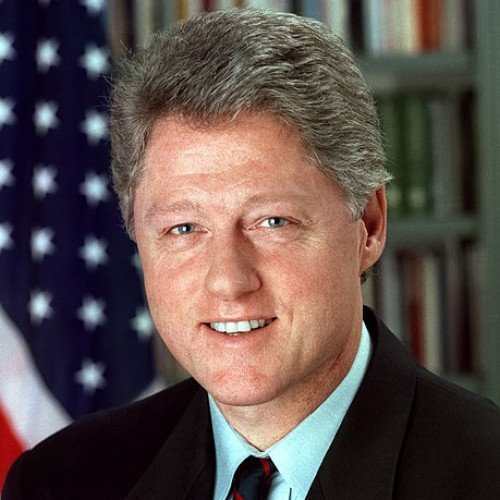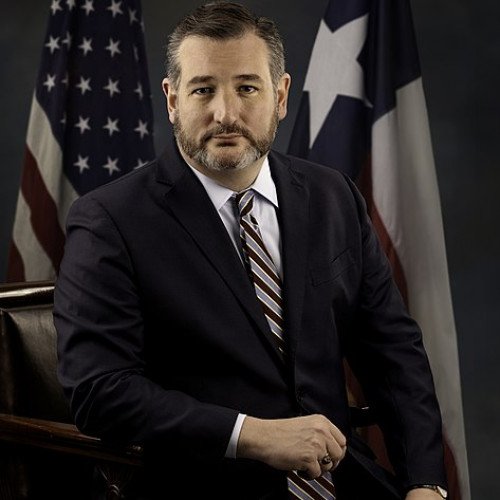Bill Clinton VS Ted Cruz

Bill Clinton
William Jefferson Clinton (né Blythe III; born August 19, 1946) is an American lawyer and politician who served as the 42nd president of the United States from 1993 to 2001. Prior to his presidency, he served as governor of Arkansas (1979–1981 and 1983–1992) and as attorney general of Arkansas (1977–1979). A member of the Democratic Party, Clinton was known as a New Democrat, and many of his policies reflected a centrist "Third Way" political philosophy. He is the husband of former secretary of state, former U.S. senator, and two-time candidate for president Hillary Clinton. Clinton was born and raised in Arkansas and attended Georgetown University, University College, Oxford, and Yale Law School. He met Hillary Rodham at Yale and they were married in 1975. After graduating from law school, Clinton returned to Arkansas and won election as state attorney general, followed by two non-consecutive terms as Arkansas governor. As governor, he overhauled the state's education system and served as chairman of the National Governors Association. Clinton was elected president in 1992, defeating incumbent Republican President George H. W. Bush. At age 46, he became the third-youngest president in history. Clinton presided over the longest period of peacetime economic expansion in American history. He signed into law the North American Free Trade Agreement (NAFTA) and the Violent Crime Control and Law Enforcement Act, but failed to pass his plan for national health care reform. In the 1994 elections, the Republican Party won unified control of Congress for the first time in 40 years. In 1996, Clinton became the first Democrat since Franklin D. Roosevelt to be elected to a second full term. He passed welfare reform and the State Children's Health Insurance Program, as well as financial deregulation measures. He also appointed Ruth Bader Ginsburg and Stephen Breyer to the U.S. Supreme Court. During the last three years of Clinton's presidency, the Congressional Budget Office reported a budget surplus—the first such surplus since 1969. In foreign policy, Clinton ordered U.S. military intervention in the Bosnian and Kosovo wars, signed the Dayton Peace agreement, signed the Iraq Liberation Act in opposition to Saddam Hussein, participated in the Oslo I Accord and Camp David Summit to advance the Israeli–Palestinian peace process, and assisted the Northern Ireland peace process. In 1998, Clinton was impeached by the House of Representatives, becoming the second U.S. president to be impeached, after Andrew Johnson. The impeachment was based on accusations that Clinton committed perjury and obstruction of justice for the purpose of concealing his affair with Monica Lewinsky, a 22-year-old White House intern. He was acquitted by the Senate and completed his second term in office. Clinton left office with the highest end-of-office approval rating of any U.S. president since World War II, and his presidency has been ranked among the upper tier in historical rankings of U.S. presidents, however he has also been subject to substantial criticism for his sex scandals and lies, especially in the wake of the MeToo movement. Since leaving office, he has been involved in public speaking and humanitarian work. He created the Clinton Foundation to address international causes such as the prevention of AIDS and global warming. In 2004, Clinton published his autobiography, My Life. In 2009, he was named the United Nations Special Envoy to Haiti and after the 2010 Haiti earthquake, he teamed up with George W. Bush to form the Clinton Bush Haiti Fund. In addition, he secured the release of two American journalists imprisoned by North Korea, visiting the capital Pyongyang in 2009 and negotiating their release with then-North Korean leader Kim Jong-il. He has remained active in Democratic Party politics, campaigning for his wife Hillary's presidential campaigns in the 2008 and 2016 presidential elections.
Statistics for this Xoptio

Ted Cruz
Rafael Edward Cruz (; generally known as Ted Cruz, born December 22, 1970) is an American politician and attorney serving as the junior United States Senator for Texas since 2013. After graduating from Princeton University and Harvard Law School, Cruz pursued a career in government. He worked as a policy advisor in the George W. Bush administration before serving as Solicitor General of Texas from 2003 to 2008. In 2012, Cruz was elected to the U.S. Senate, becoming the first Hispanic American to serve as a U.S. senator from Texas. In the Senate, Cruz has taken consistently conservative positions on economic and social policy; he played a leading role in the 2013 United States federal government shutdown, seeking to force Congress and President Barack Obama to defund the Affordable Care Act. He was reelected to the Senate in 2018. In 2016, Cruz ran for president of the United States, placing second behind Donald Trump in the Republican primary. The competition for the Republican presidential nomination between Trump and Cruz was deeply acrimonious and characterized by a series of public personal attacks. Trump ridiculed the physical appearance of Cruz's wife, and falsely accused Cruz's father of murdering John F. Kennedy; Cruz vilified Trump, calling him a pathological liar and morally unfit for the presidency. Despite this, Cruz became a staunch Trump supporter during his presidency. In January 2021, Cruz provoked a widespread political and popular backlash after filing objections to the certification of Joe Biden's victory over then-President Donald Trump in the 2020 presidential election; he was criticized for giving credence to the baseless conspiracy theory that the election was fraudulent. On the day the electoral votes were tallied and Cruz filed his objections, Trump supporters motivated by the belief that the election was stolen stormed the United States Capitol. Because Cruz helped popularize and legitimize the conspiracy theory that motivated the rioters, many figures from across the political spectrum argued that he bore a degree of responsibility for the riot and the five deaths it caused, and called for his resignation or expulsion from the Senate.